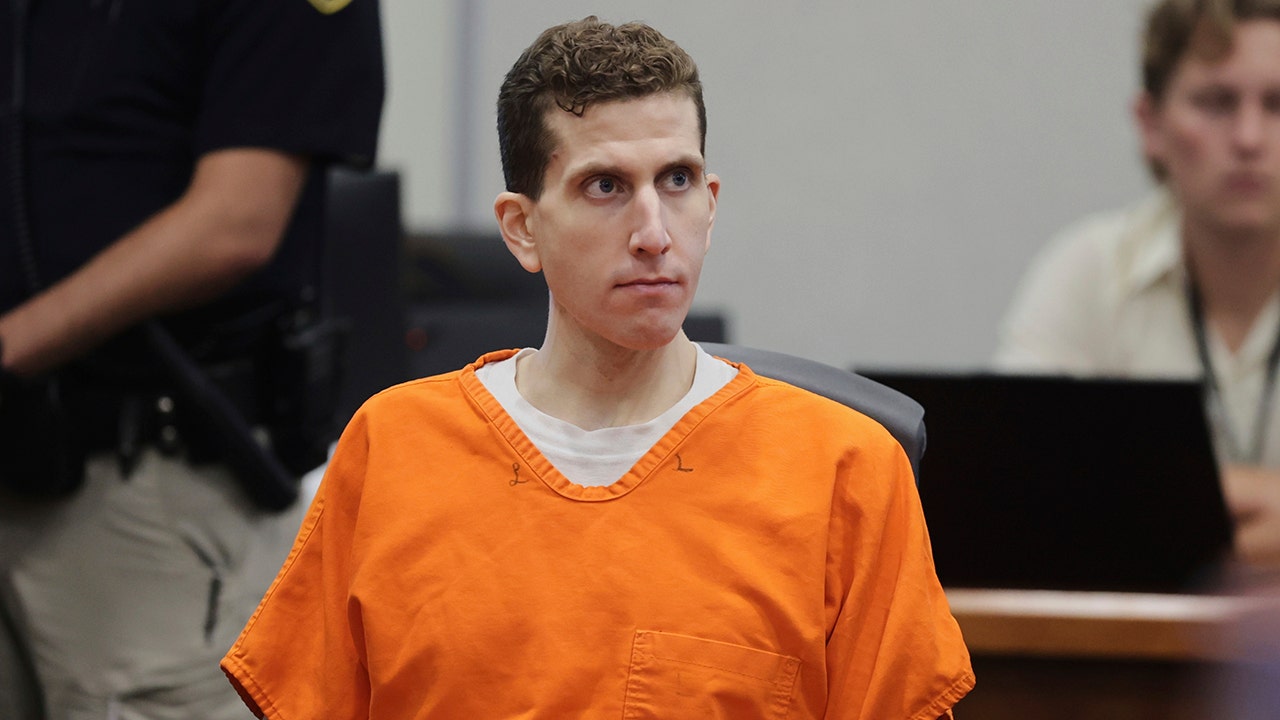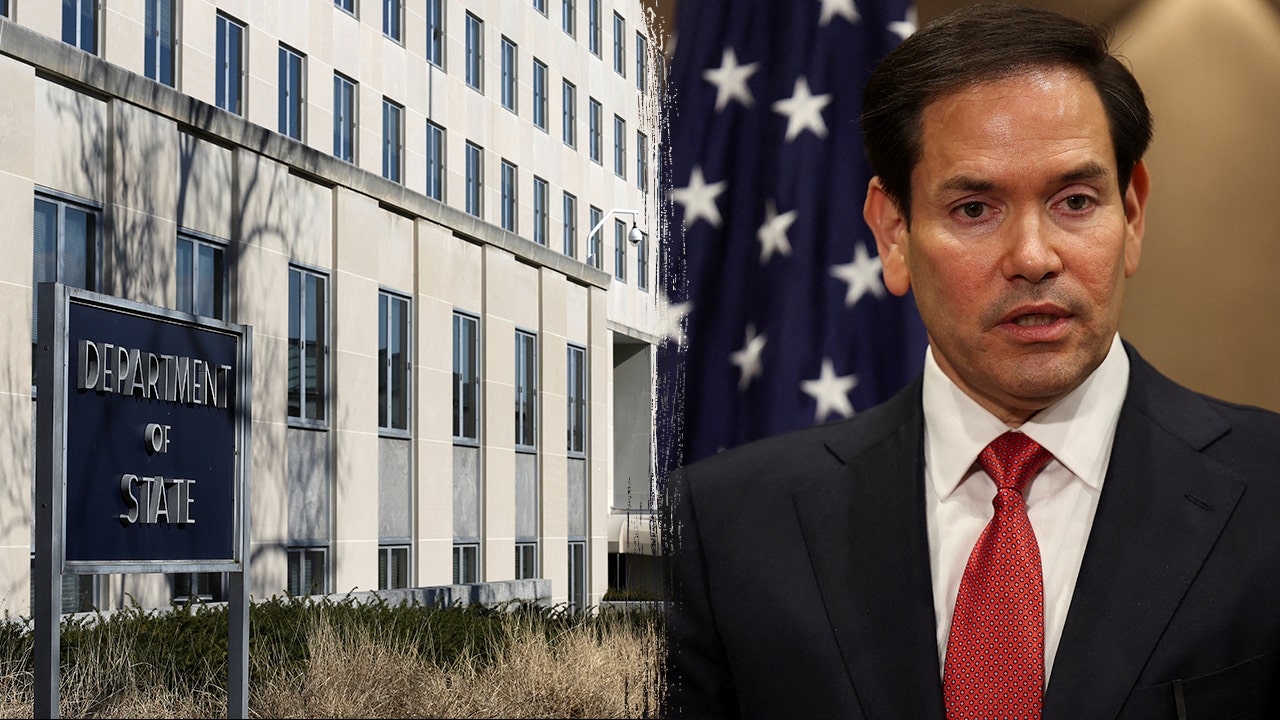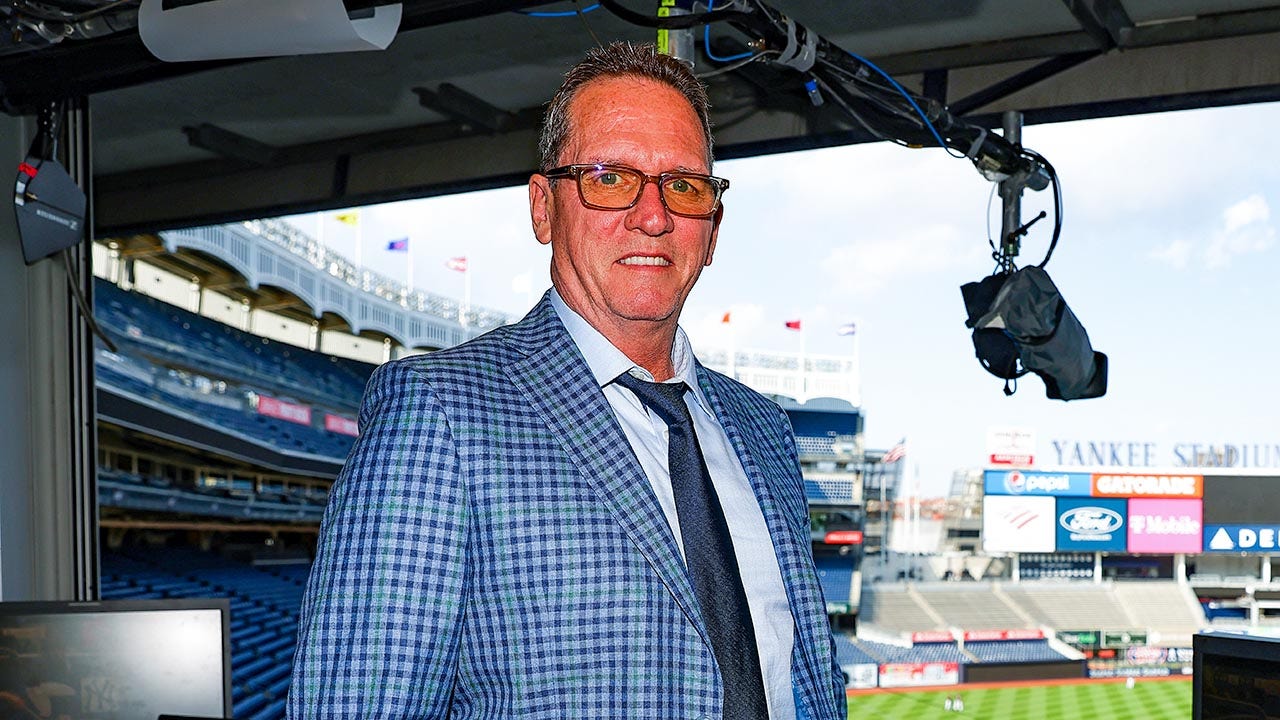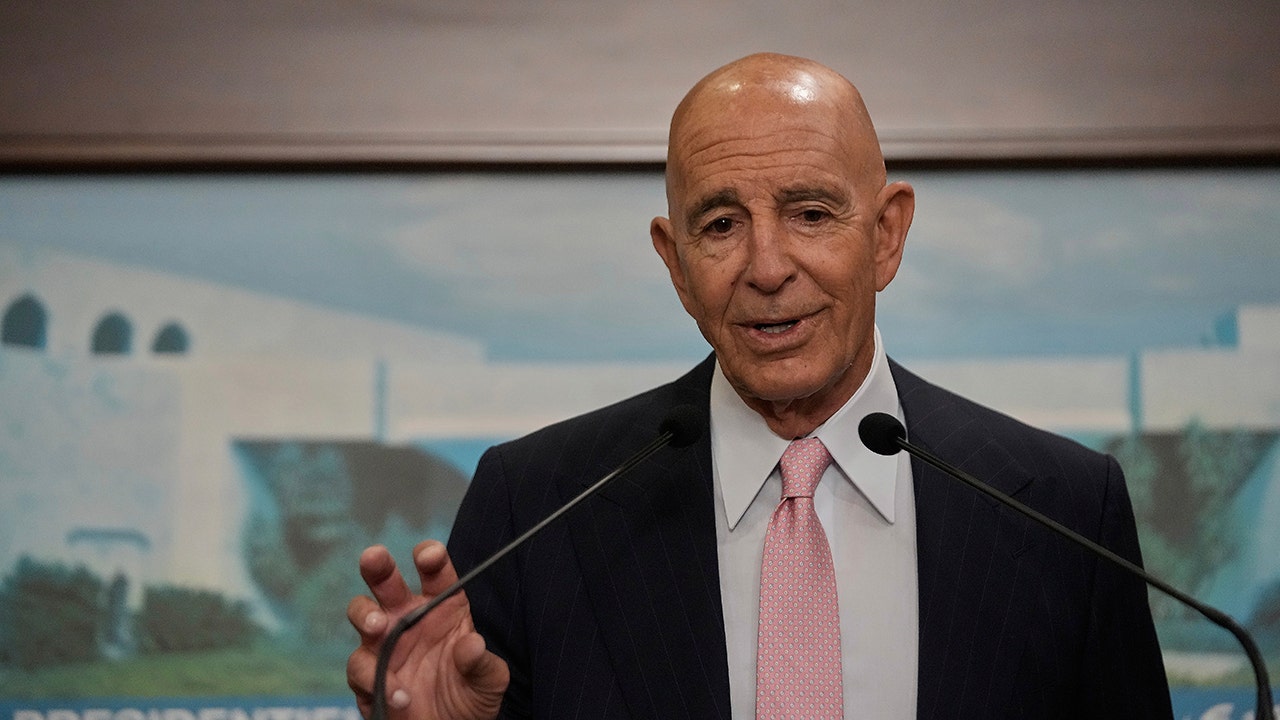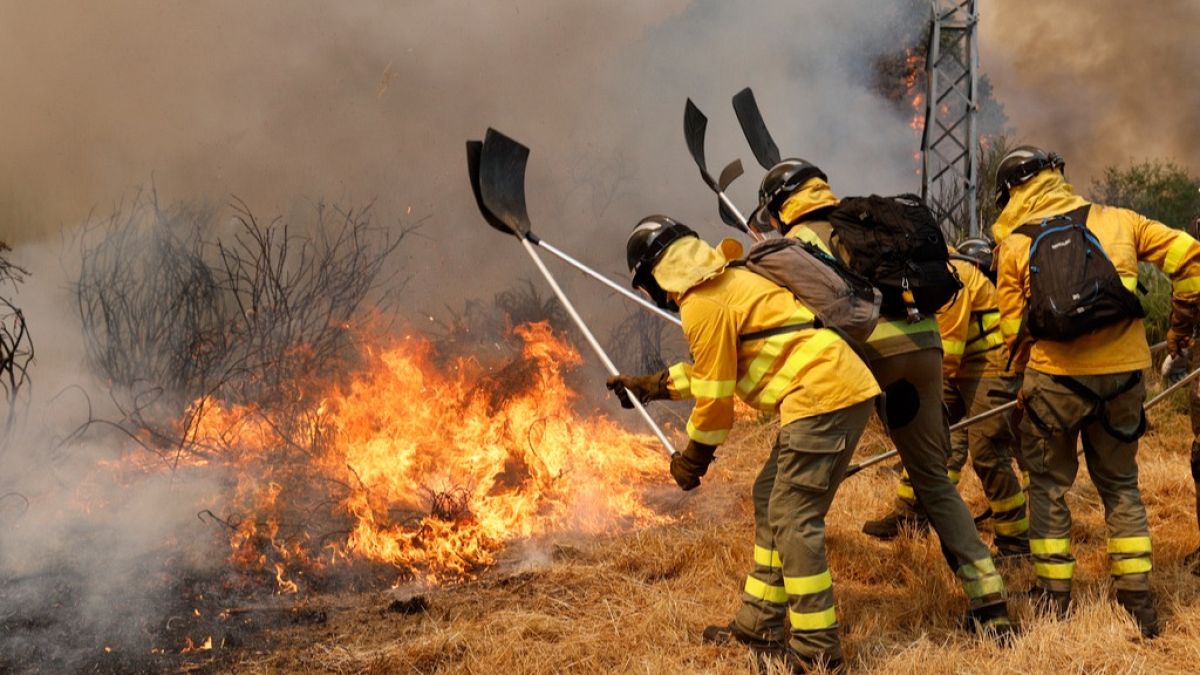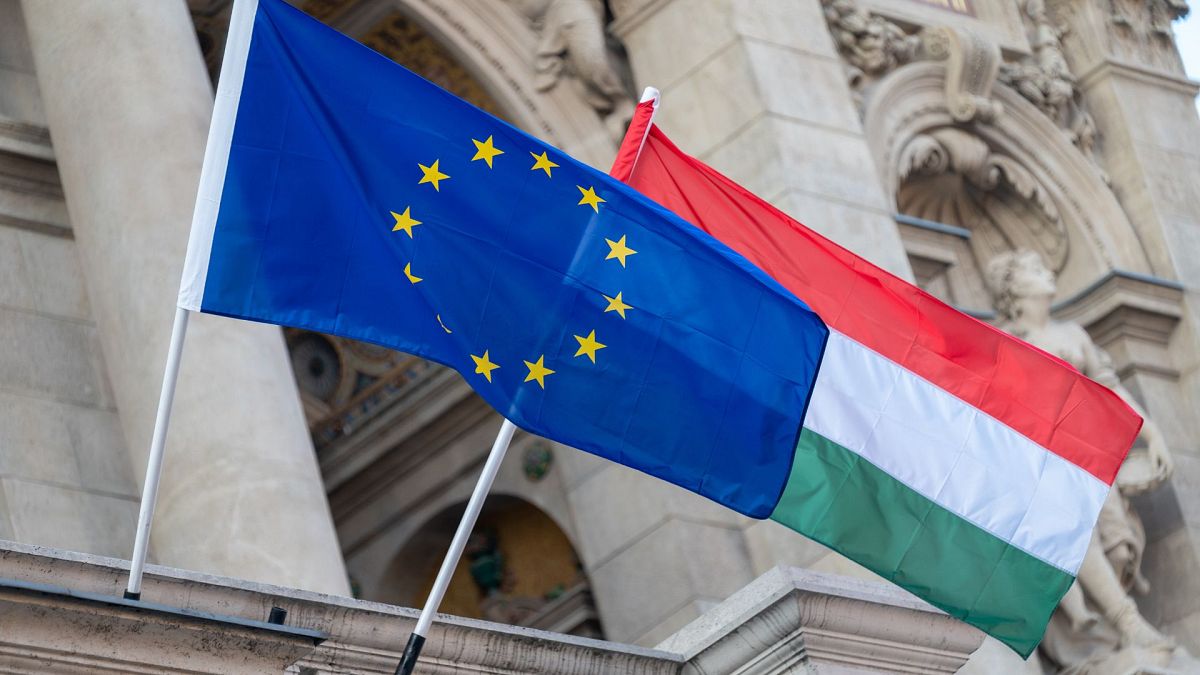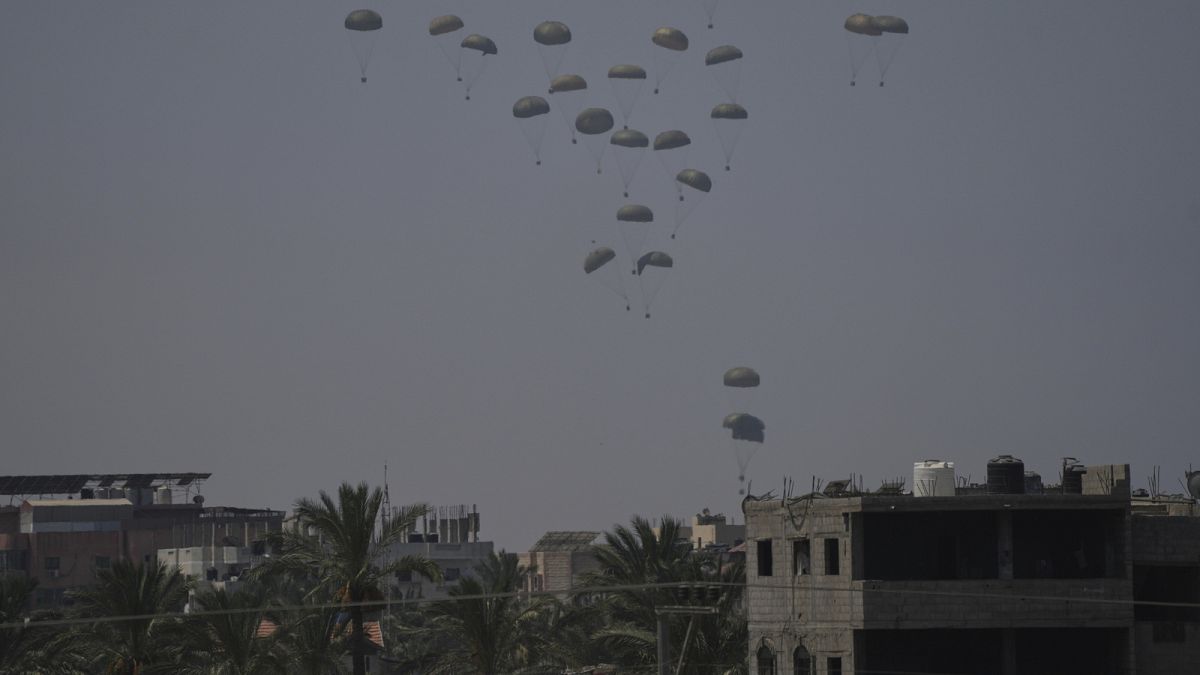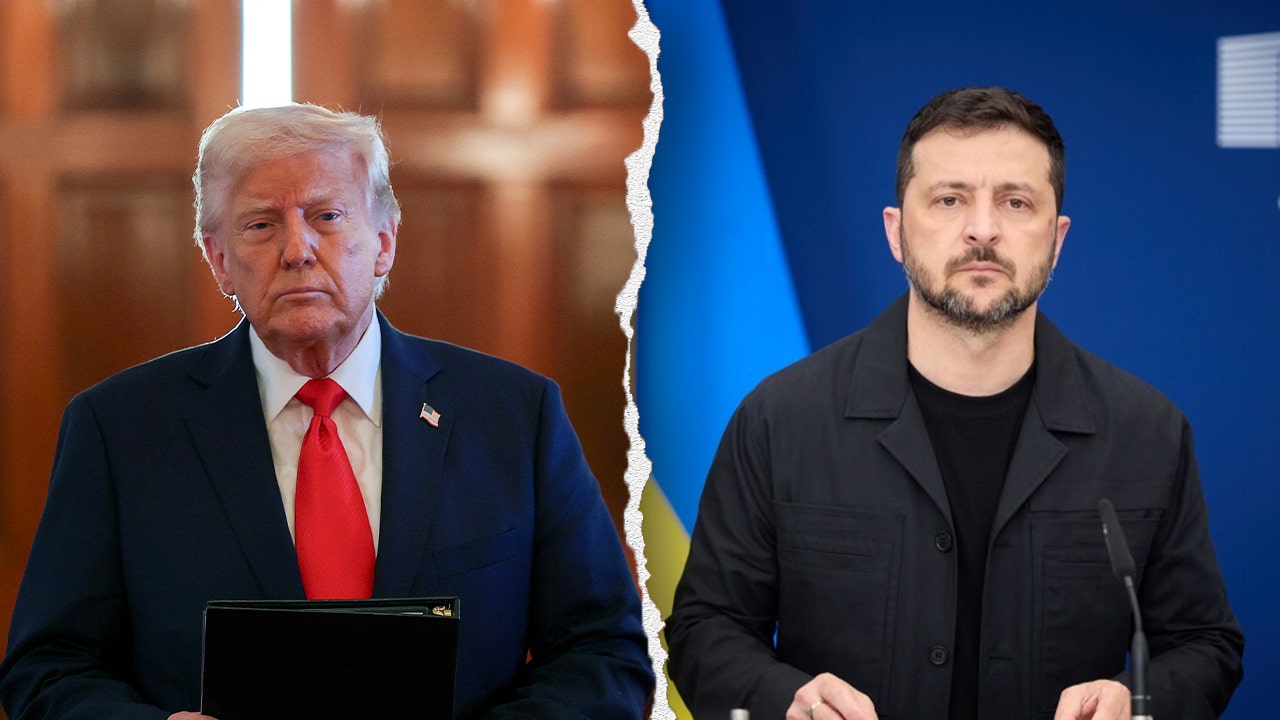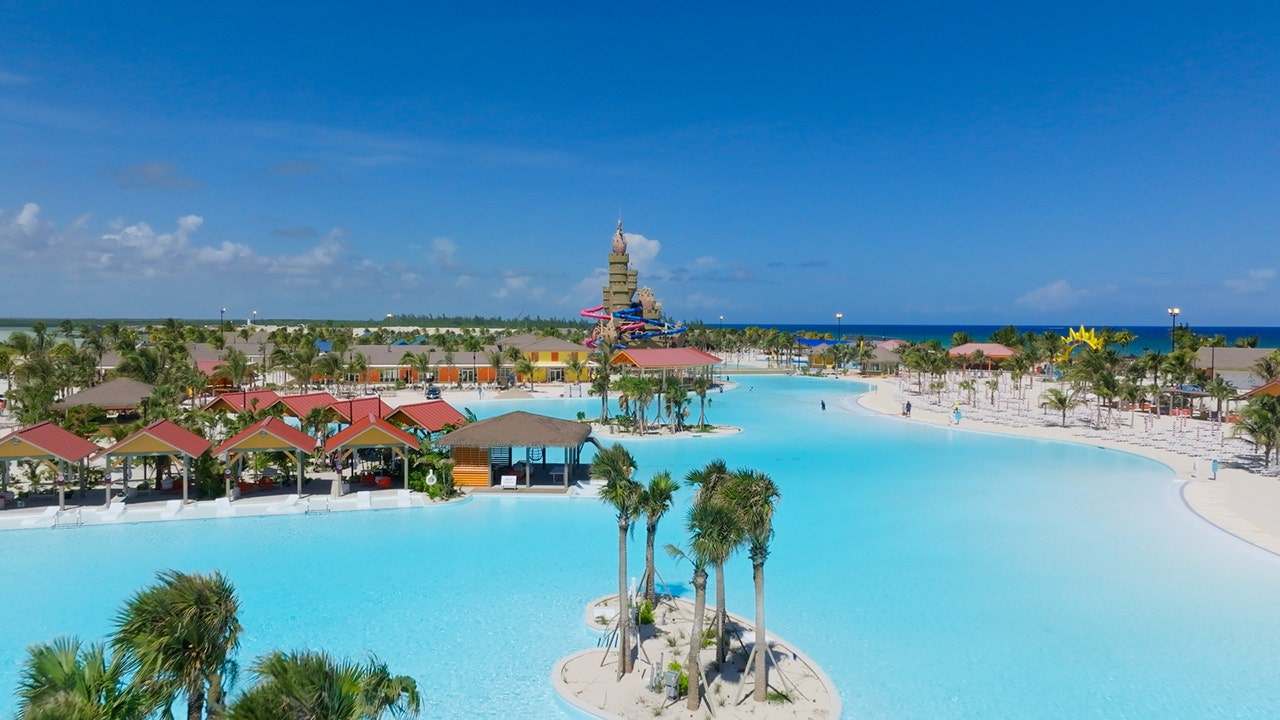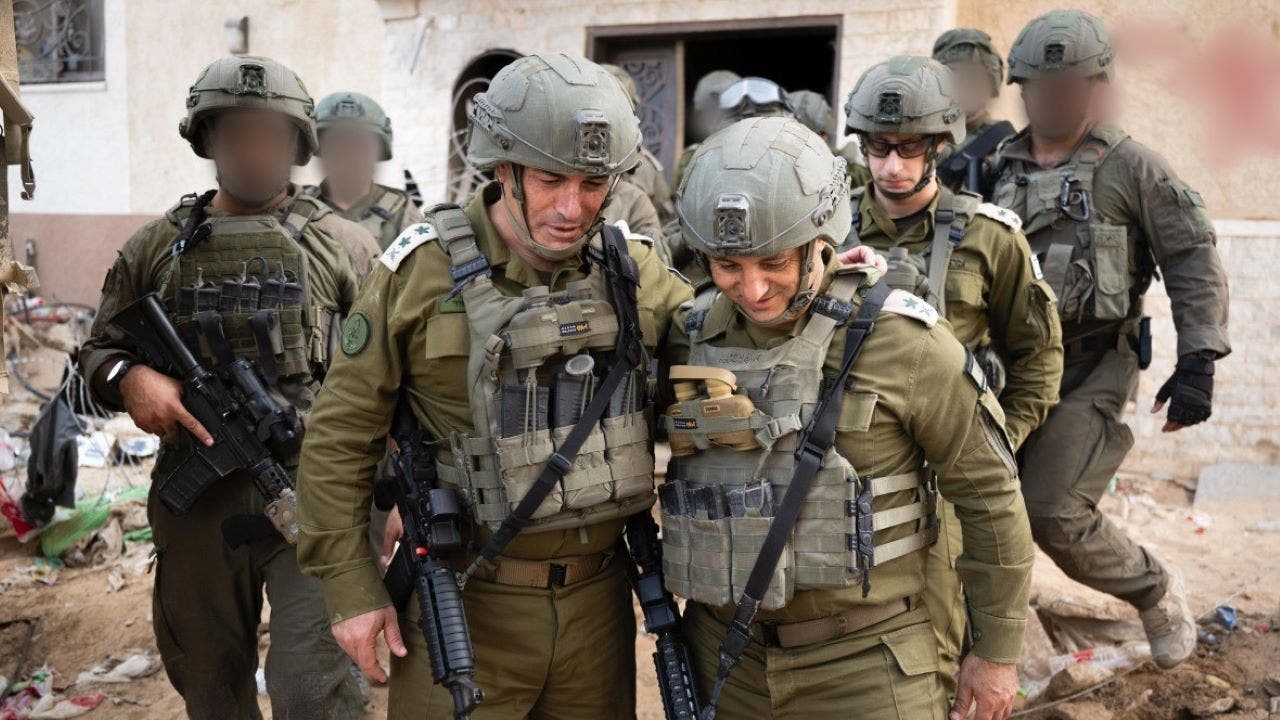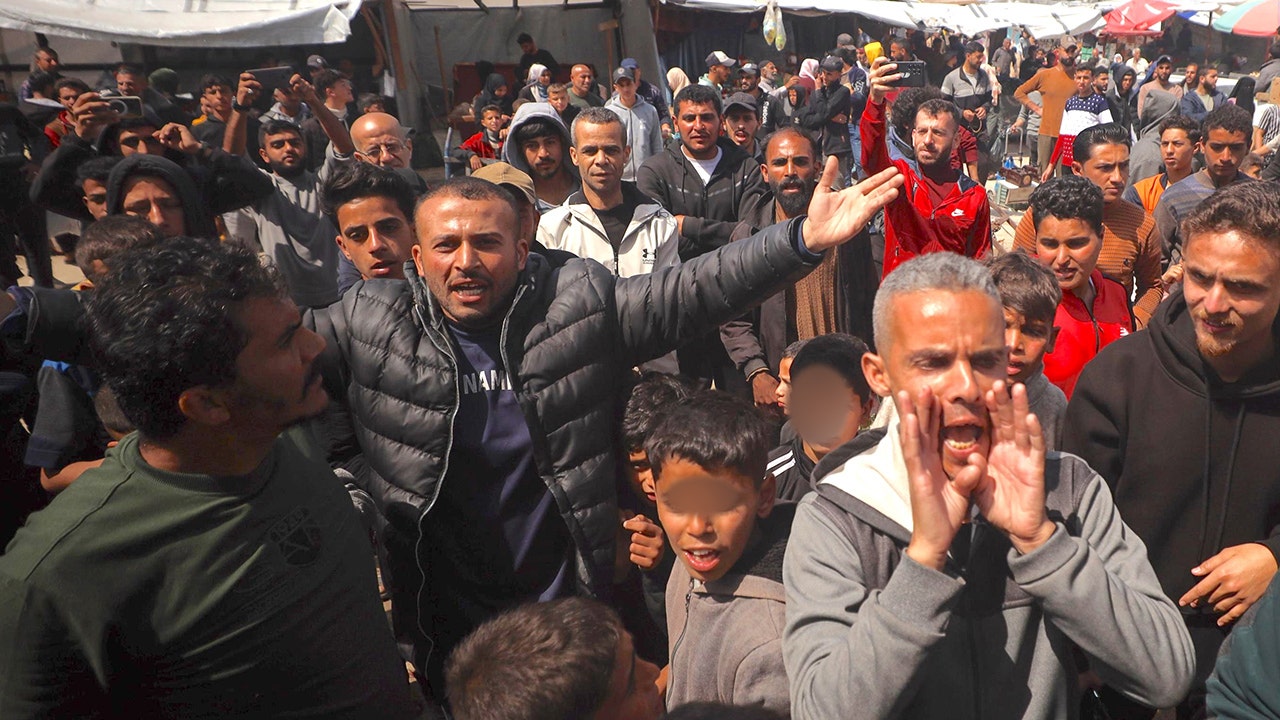NEWYou can now listen to Fox News articles!
Tom Barrack, the U.S. special envoy to Lebanon, said Monday that his team would discuss a possible ceasefire agreement with Israel, after Beirut endorsed a U.S.-backed plan for the Hezbollah terrorist group to disarm.
Barrack, following a meeting with Lebanese President Joseph Aoun, also said Washington would seek an economic proposal for post-war reconstruction in the country, after months of shuttle diplomacy between the U.S. and Lebanon. Hezbollah, which the U.S. has officially designated as a Foreign Terrorist Organization since 1997, remains Iran’s most powerful proxy in the region and has been subject to extensive U.S. sanctions.
Barrack is also set to meet with Prime Minister Nawaf Salam and Speaker Nabih Berri, who often negotiates on behalf of Hezbollah with Washington.
“I think the Lebanese government has done their part. They’ve taken the first step,” said Barrack, who is also the U.S. ambassador to Turkey. “Now what we need is for Israel to comply with that equal handshake.”
FRENCH-DRAFTED UNIFIL RESOLUTION COULD SHIELD HEZBOLLAH AS US STAYS SILENT
Hezbollah drew intensified pressure during President Donald Trump’s first term, when Washington revived enforcement actions against its global finance networks, imposed new sanctions and designated it a Transnational Criminal Organization in 2018.
In Trump’s second term, the administration has broadened these measures.
The Treasury Department announced new sanctions on Hezbollah-linked financiers and front companies, including designations in March and July targeting oil smuggling operations, senior officials and the group’s financial arm, Al-Qard Al-Hassan. The State Department has also offered up to $10 million for information disrupting Hezbollah’s financial networks and reiterated that Hezbollah must not participate in Lebanon’s government.
Lebanon’s decision last week to support a plan to disarm Hezbollah angered the Iran-backed terrorist group and its allies, who believe Israel’s military should first withdraw from the five hilltops in southern Lebanon it has held since the end of its 14-month war with Hezbollah last November and stop launching almost daily airstrikes in the country. Naim Kassem, Hezbollah’s secretary-general, has vowed to fight efforts to disarm the group, sowing fears of civil unrest in the country.
“This is our nation together. We live in dignity together, and we build its sovereignty together – or Lebanon will have no life if you stand on the other side and try to confront us and eliminate us,” Qassem said in a televised speech last week, according to Reuters.
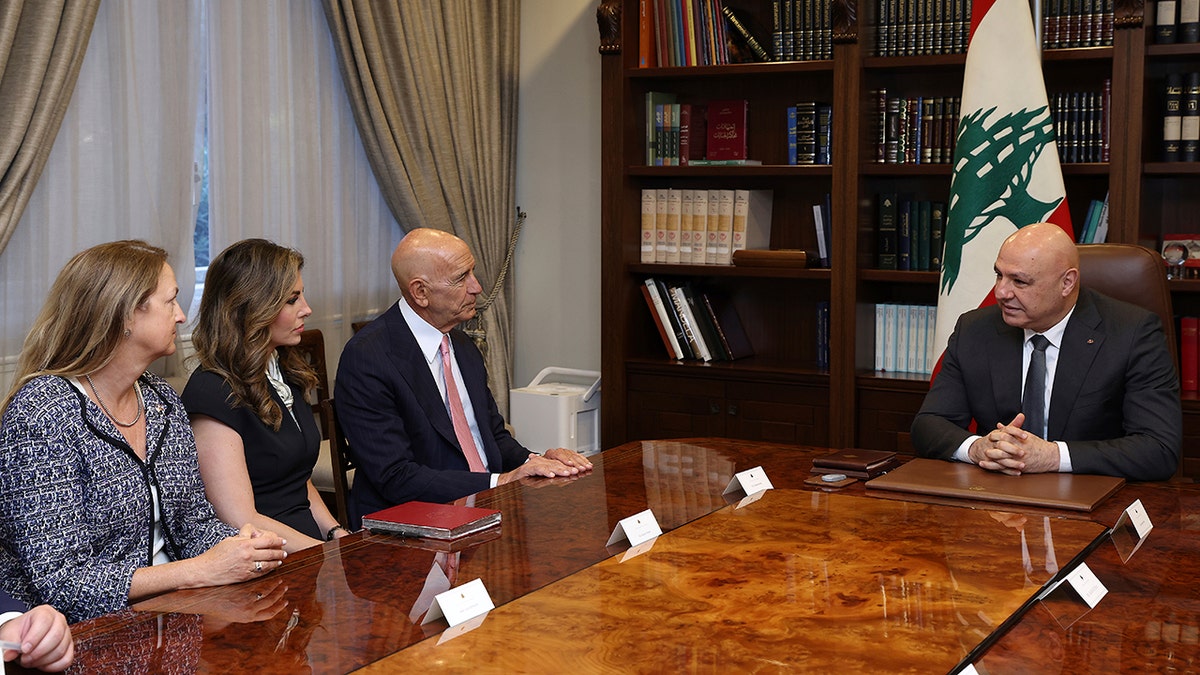
US PULLS TEAM FROM CEASEFIRE TALKS IN QATAR AFTER ISRAEL DOES THE SAME, CLAIMING HAMAS IS ACTING IN BAD FAITH
Salam, Lebanon’s prime minister, said Qassem’s remarks “carry a veiled threat of civil war, and no one in Lebanon today wants a civil war, and threatening or hinting at it is completely unacceptable.”
In the wake of the Oct. 7, 2023, attacks by Hamas terrorists, Hezbollah launched rocket strikes and artillery fire against Israel, prompting Israel to respond with airstrikes. About 14 months of cross-border combat ensued, and Israel increasingly carried out precision strikes targeting Hezbollah commanders and leadership. Large-scale fighting has not resumed since Israel and Hezbollah reached a U.S.-brokered ceasefire agreement in November 2024, though there have been violations.
The Israeli military has said the almost-daily airstrikes in southern Lebanon are intended to weaken Hezbollah’s network and offset the terrorist group’s efforts to reorganize and rearm.
Barrack warned Hezbollah that it will have “missed an opportunity” if it does not back the calls for it to disarm.
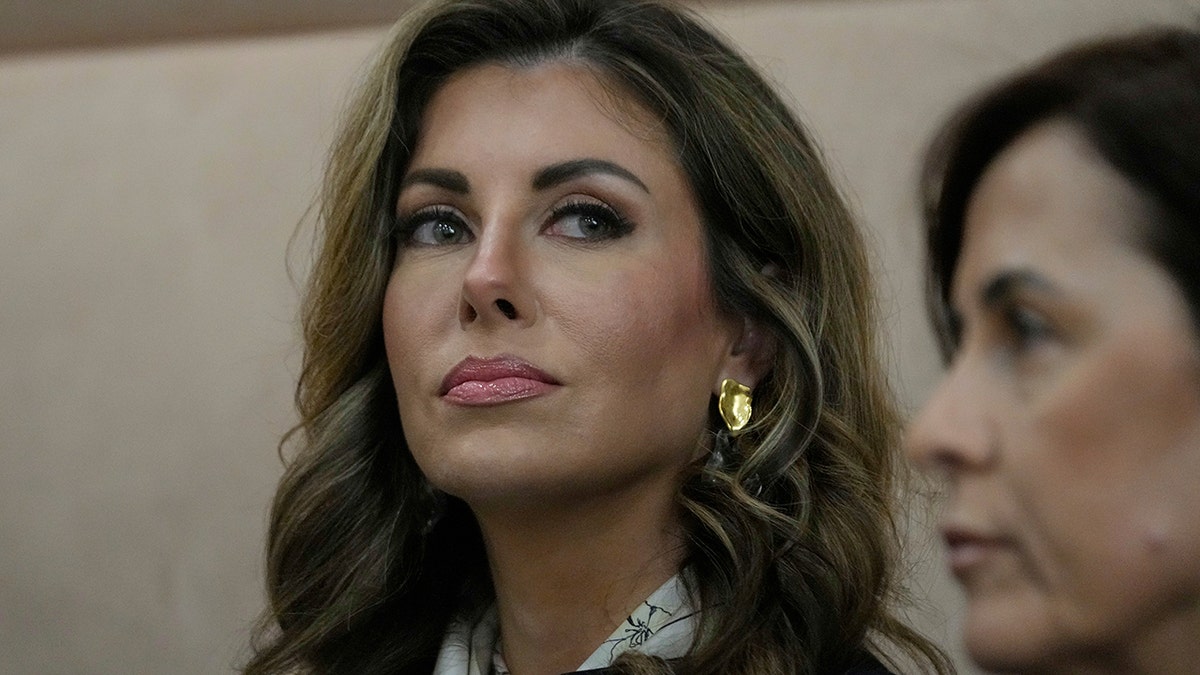
Aoun and Salam both want to disarm Hezbollah and other non-state armed groups, and have demanded Israel halt its attacks and withdraw from the country.
Aoun said he wants to increase funding for Lebanon’s cash-strapped military to bolster its capacity. He also wants to raise money from international donors to help rebuild the country.
The World Bank estimates that Hezbollah and Israel’s war in late 2024 cost $11.1 billion in damages and economic losses as large swaths of southern and eastern Lebanon were battered. The country has faced a crippling economic crisis since 2019.
The Associated Press contributed to this report.
Read the full article here



